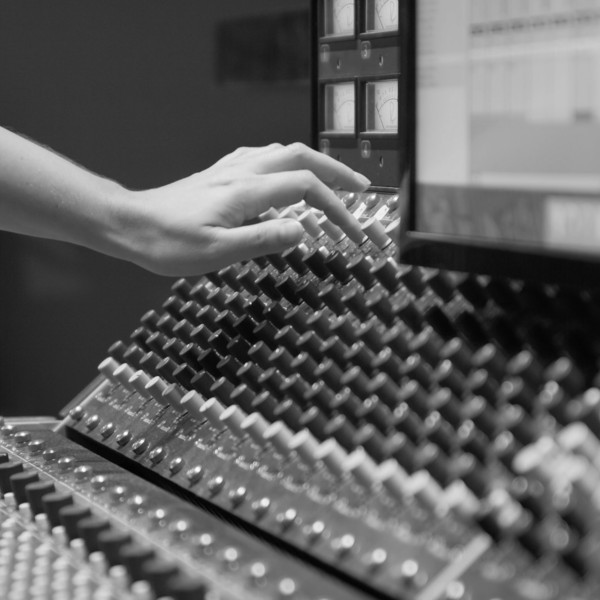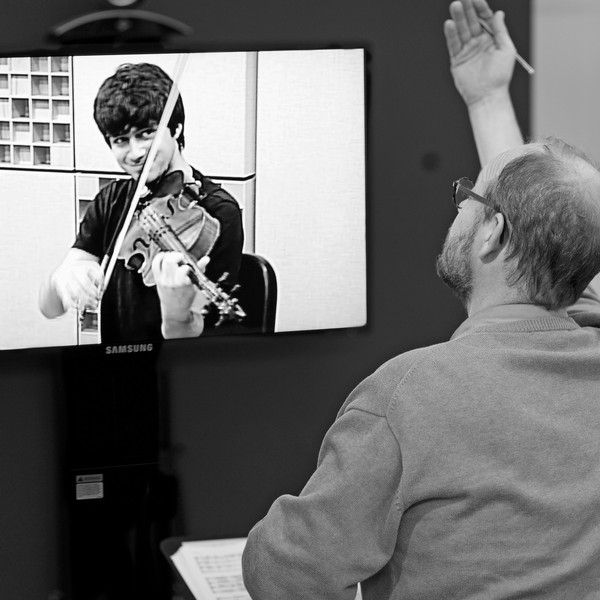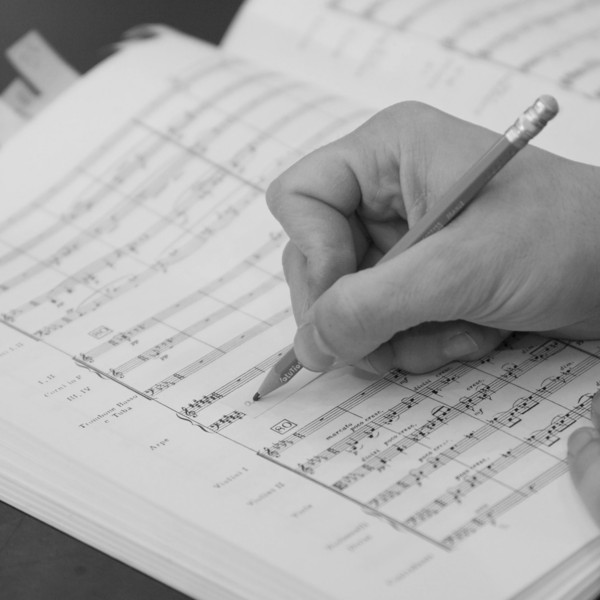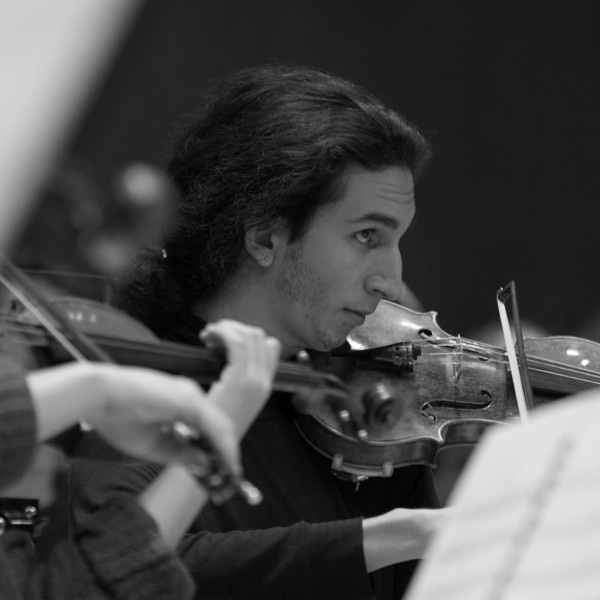Research
Research at DKDM is carried out by DKDM's teachers and can take for instance be research projects in collaboration with researchers from Denmark and abroad and include publications in the form of articles, books, papers, conference contributions, etc.
Current Research Projects
In 2018, DKDM launched the research project Art and Learning, which currently consists of 4 independent PhD projects and a joint research forum as well as other joint initiatives. The project is carried out in collaboration with graduate universities. Art and learning thus have two levels: an individual level, where each project stands for itself and engages in collaborations and exchanges with peers and stakeholders, and, on the other hand, a common level where the projects talk to each other, develop each other and together develop professional language, concepts and definitions within the field.
Art and learning are rooted in DKDM's core competence: to educate classical musicians at the highest international level. Not only do DKDM's students acquire large amounts of knowledge and craftsmanship – they must also develop into individual artists. It is precisely the development of the individual artistic character that characterizes the special form of learning required in an art education such as DKDM. But with Art and Learning DKDM will not only develop and expand our own knowledge base, DKDM also contributes nationally and internationally when it comes to research within learning, pedagogy and creative processes.
Completed research projects
Worlds become in sound. A Study in the Phenomenology of Music Creation, Being, and Pedagogic Processes of Bildung
The dissertation is the result of a PhD programme conducted in collaboration between the Royal Danish Academy of Music and the Department of Education and Pedagogy, DPU, Aarhus University.
Main supervisor: Frederik Pio.
Project presentation
11 September 2023, Peter Bruun presented his dissertation at RDAM:
PhD presentation by Peter Bruun - YouTube (in Danish)
About the dissertation
In my PhD programme, I have investigated the significance of musically creative processes in educational contexts. The study has produced a number of empirical, theoretical and philosophical insights concerning children's and adults' relationship to music, and in particular music in an educational perspective: education through music and education to music.
Musical processes and musical cognition are 'silent' in the sense that the deep and meaningful aspects cannot be put into words. At the same time, my PhD studies show that music, like language, defines how we come together as human beings and how we unfold our common life in dialogue and across generations. Musical education is just as fundamental and important as education in and with the mother tongue.
I argue that the creating must be understood as the starting point for all musical education. Children enter the world as musically acting and musically creating people. Being musically creative is not something you learn, but something we all are. It is in the creative process that you experience yourself as a musical person when you realise that music is "for me" because it also comes "from me" and because I share it with others. Then you realise that music is not just sound, but that it means something as it comes into being. In a world where music has largely become a consumer good that flows through electrical and digital media, this is the starting point for pedagogical interaction: that music is something in the making. Consequently, in order to promote musical education, it is necessary to develop pedagogical practices that are fundamentally experimental.
A musical education based on creativity can be expressed in an awareness that we as human beings all have both the opportunity and the right to actively participate in music, and that we all have the opportunity to express ourselves in music and reflect on music and through music.
Contact
If you want to know more or read the full dissertation, please contact, Peter S. Bruun.
Research team
Karin Levinsen (Assoc. Prof.), Mie Buhl (Prof.) and Rikke Ørngreen (Assoc. Prof.) from the Faculty of Humanities, Aalborg University, working within IT and Learning in an educational design perspective.
Project presentation
Here is a presentation of the project that Jesper Andersen, associate professor at The Royal Danish Academy of Music, made to a conference at the Sibelius Academy of Music on May 20th 2014
About the project
RDAM is using advanced video conference as a supplement to day-to-day teaching.
The project has demonstrated many new and interesting perspectives when using this new technology. The project was initiated from international cooperation, using existing partnerships - especially with Manhattan School of Music as a platform for the development of Distance Learning.
During the last couple of years, RDAM has acquired more and more experience in using Distance Learning in music education, which has become a more integrated part of the activities at the Academy. Many teachers work with Distance Learning weekly.
Distance learning is viewed as a supplement to traditional classroom training. The technology enables students to meet teachers that they would otherwise never meet and meet other students worldwide.
Distance Learning does not replace regular classes. Instead, distance Learning allows for meetings to occur that would otherwise never take place.
During the project, international relations have developed as a direct result of the work. Not only have existing partnerships been strengthened, but new partnerships have developed.
The project has demonstrated that students are not afraid of new platforms and new ways of acquiring knowledge. On the contrary, the students embrace the new technology and its many possibilities.
Research Project
RDAM has engaged in a pedagogical research project linked to the development of Distance Learning
When RDAM started working with Distance Learning it was quickly identified that teaching and instruction using Distance Learning is different from ordinary one-to-one teaching. It requires a new way pedagogical approach. Furthermore, RDAM wishes to explore whether the technology allows for new educational forms that may expand the educational repertoire, e.g. peer-to-peer activities among students.
The project is titled: Changing practices and new pedagogical awareness related to using the advanced videoconferencing in instrumental teaching in the field of higher music education
New pedagogical approaches are necessary, when using Distance Learning:
- The very small time delay makes simultaneous singing, conducting and playing along impossible
- The lack of physical presence
- The possible discomfort of being on air
In order to investigate these issues more closely, RDAM has engaged in a research project together with a specialized research team from Aalborg University.
The research project links art communication, education, pedagogy and scientific research in a unique way. The project at RDAM is destined to map out the possibilities for a development of the pedagogical/technical platform for instrumental Distance Learning.
In the research project the traditional pedagogy and the everyday practice between students and teachers is challenged in a new Distance learning setting. What are the challenges that are faced and what are the subsequent needs for qualified competence building for teachers and technicians?
Partners in the Research project
The Royal Danish Academy is proud to boast its close collaboration in the research project with two of the world’s leading music academies.
Both academies have been forerunners in the development and use of Distance Learning in higher Music Education.
New World Symphony Orchestra
The New World Symphony (NWS) was founded in 1987 by Michael Tilson Thomas, with the purpose of preparing gifted music graduates for leadership position in orchestras and ensembles.
NWS is housed in a building designed by Frank Gehry. The building is equipped with cutting edge technology and facilities.
NWS differs from other prominent music academies and conservatories as it does not have in-house faculty members. Subsequently, Distance Learning has been used by NWS for the last ten years to connect teachers and coaches with their students.
Cleveland Institute of Music
Cleveland institute of Music (CIM) is considered to be one of America’s leading music schools. CIM has a close collaboration with Case Western Reserve University and the Cleveland Orchestra. Based in University Circle in Cleveland, Ohio, CIM is part of an intellectual, research and arts-based community in Cleveland.
CIM has a long tradition for working with Distance Learning technologies in higher music education.
Project Outline
- 40 sessions/observations
- Interviews with participation students and teachers
- Reflections and workshops
Faculty members from RDAM conduct distance learning lessons on a regular basis around every two weeks with the same students at the partner institutions.
The sessions are observed by the research team and recorded for later analysis. Based on the video recording, the researcher conducts interviews with the teachers and students.
The knowledge gained from the sessions and interviews are channelled into the next sessions, hereby refining and developing their teaching methods.
In between sessions participating teachers meet in workshops to share experiences and to develop new ideas and thoughts. The workshops are also an opportunity for teachers and technical staff members to meet and share their experiences.
The research project has two outputs:
- Development of the teachers, engineers and students skills and awareness within distance learning and
- Scientific papers/presentations presenting the research results on the development of new teaching methods in Distance Learning.
These two elements will be boiled down to a “easy to read” guide for new and experienced distance learning teachers.
The Research Team
Karin Levinsen (Assoc. Prof.), Mie Buhl (Prof.) and Rikke Ørngreen (Assoc. Prof.) from the Faculty of Humanities, Aalborg University, working within IT and Learning in an educational design perspective.
In general, they have a strong interest in digital productions in a multimodal learning perspective, in both a-synchronic and synchronic forms. Their collective research and educational experience within the videoconferencing field includes university level teaching in various formats such as: Supervision (group and individually), class teaching (opponent seminars, dialog based lectures, Q&A, student project presentations, student arranged learning session with supervision), and project and problem based learning.
Research findings
Distance Learning in Higher Music Education is carried out in cooperation with:
Cleveland Institute of Music, www.cim.edu, and
New World Symphony, Miami Beach, www.nws.edu
Please find the presentation of all the findings below:
- Introduction, Bertel Krarup, President at The Royal Danish Academy of Music
- Finding 1: Students are more active and reflecting
- Finding 2: Physical contact is replaced by verbalization
- Finding 3: Visual opportunities are expanded
- Finding 4: The teaching room plays a new role
- Finding 5: The visual expression is of great importance
- Finding 6: New teaching forms can be developed
- Finding 7: Increased attention to pedagogical issues
- Finding 8: The technician is affecting the learning situation
The researchers from Aalborg University are:
Mie Buhl, Karin Levinsen and Rikke Orngreen



